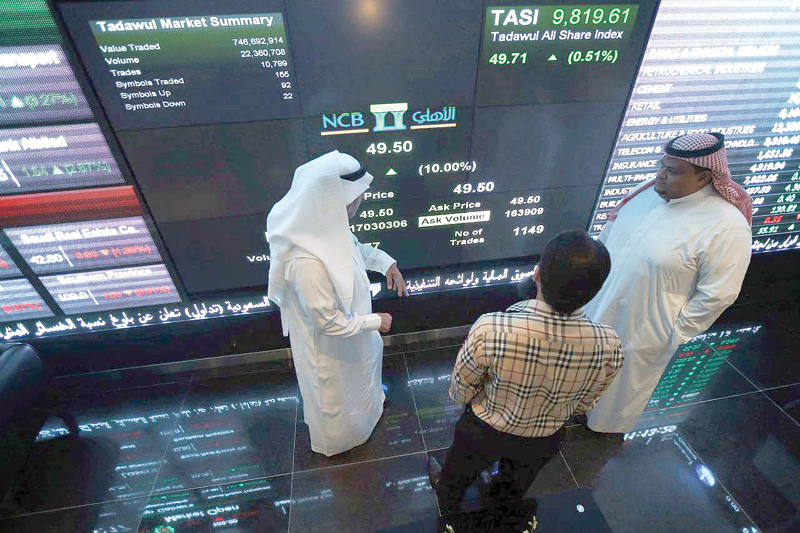

Marwa Rashad, Davide Barbuscia -
The imminent listing of oil giant Aramco will be a pivotal moment for Saudi Arabia’s young and untested Tadawul stock exchange. The Tadawul has said it has been preparing for years and is primed for the long-awaited share sale in coming weeks. But hosting possibly the biggest initial public offering in history represents a huge leap into the big league for a 12-year-old exchange that only admitted foreign investors four years ago.
Mega-IPOs have a record of causing technical glitches on stock markets as they can lead to a surge in trading orders that swamp an exchange’s system and can prevent investors from buying or selling stock.
Facebook’s 2012 listing on Nasdaq, for example, was hit by widespread delays and problems processing the huge volume of orders. And that was a smaller IPO than Aramco’s is expected to be, on a marquee exchange with more than four decades of experience; the Nasdaq Composite index today hosts more than $13 trillion worth of shares, according to Refinitiv data, about 27 times the Tadawul’s roughly $500 billion.
Any technical or liquidity problems could deal a blow to the Tadawul’s credibility, industry experts say.
“You have to have really robust technology in order to support the spike that’s expected with a high-profile IPO,” said Spencer Mindlin, an analyst at Aite Group.
For an exchange in an emerging market like Saudi Arabia, the Aramco IPO arguably carries more risk than for an exchange in a country with a more developed capital markets infrastructure, because the IPO will set the tone for the market, he added.
The exchange might argue though that it has learned from missteps made elsewhere in big listings like Facebook’s.
It brought in a new trading platform developed by Nasdaq in 2015, while last year Saudi Arabia’s Capital Market Authority introduced a price stabilisation mechanism to prevent large share price drops in newly listed companies.
Nonetheless, uncertainty around the exchange’s ability to digest the bumper listing represents another potential hazard for investors already rattled by a September attack on Aramco’s facilities that underlined the geopolitical risk associated with the state oil company.
Some advisers working on the IPO say the Saudi stock market’s ability to handle the deal was one of the main questions coming from investors.
“They’re asking who are the cornerstones, is there liquidity in the market, how much will be leveraged, is there any potential risks with margin calls?” said one banker, who asked not to be named as he is not authorised to speak publicly.
Share sales of the world’s most profitable company will begin on November 17, according to the IPO prospectus published on Saturday.
Aramco could offer 1 per cent-2 per cent of its shares, raising as much as $20 billion to $40 billion, sources said. A deal over $25 billion would top the record IPO of Chinese retail titan Alibaba on the New York Stock Exchange in 2014.
The Saudi exchange has been bullish, with its boss Khalid al Hussan saying this month that it was “ready to receive the largest listing in the history of financial markets”.
But Aramco itself has warned the transaction could disrupt trading on the exchange, where the largest listing so far has been worth $6 billion.
In its IPO prospectus, the company said recent changes to trading mechanisms, to modernise the platform and align with international standards, were “untested and there can be no assurance that they will adequately facilitate the listing of and expected high trading volume in the shares”.
The changes mean there is now a smaller window between when a company’s shares are priced, sold and then admitted to trading, which could risk a delay to the listing, the prospectus said.
The past two years have seen several major investment banks join the exchange as members including Goldman Sachs and Citi, meaning they can broker and deal there, providing more outlets to help investors to trade.
But volume on the market this year so far is sluggish. — Reuters
Oman Observer is now on the WhatsApp channel. Click here



